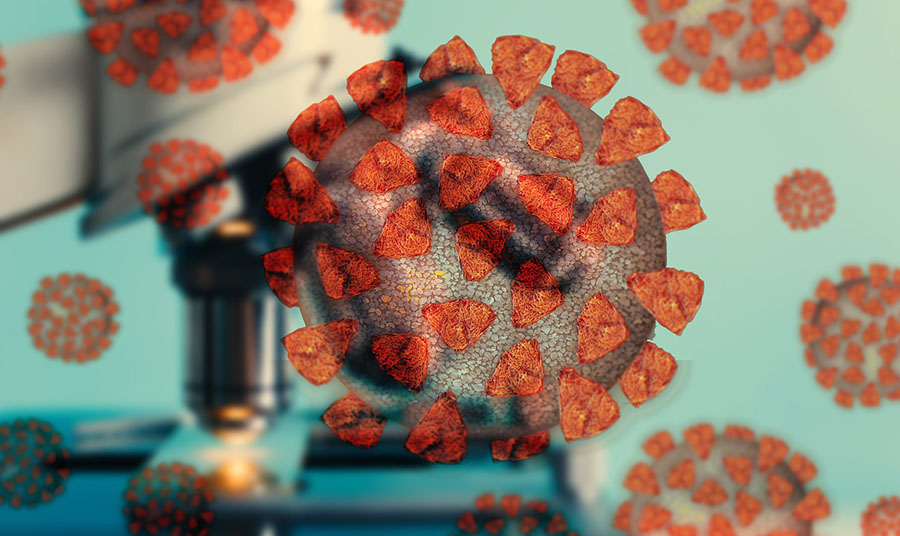In recent weeks, Anixa Biosciences Inc. (ANIX: NASDAQ) has met with the FDA regarding its CAR-T therapy and has now scheduled a discussion around Cchek for early December. These are important events as the FDA will review data submitted before even agreeing to a meeting. Thus, the meetings themselves represent considerable progress for Anixa.
With this in mind, we thought it would be a good time to speak with Dr. Amit Kumar, the CEO of Anixa, to get an update on the first meeting as well as more details around the recent trial results published on Cchek. Below is our conversation.
Tailwinds Research (TW): This has been a busy time for Anixa with an FDA meeting about your CAR-T therapy and a presentation of data on Cchek. Let's start with CAR-T as you recently announced the substance of your meeting with the FDA. Can you provide us with more detail about how that meeting went, and what steps are required in order to file your Investigational New Drug (IND) application?
Dr. Amit Kumar (AK): It was a very good meeting. The FDA had reviewed our data beforehand, and we discussed their responses to the questions we had posed in our submission, and we received the information we needed to finish up and file our IND application. Now that the meeting is over, we have begun completing the tasks necessary, including some additional studies, for filing the IND application. Based on the prior data, we feel that the additional experiments will not be a major hurdle. Considering the outcome of the meeting, we hope to file the IND application in Q2 and upon approval by the FDA to begin trials, we hope to begin the trials in the summer.
My original goal had been to begin trials in Q2 of next year. It looks like it will be closer to the end of Q2 or beginning of Q3. We have to understand that this is the first in-human therapy of its kind and the FDA asked for some additional data before we can begin the experiments on humans. The delay is roughly 60–90 days from the recent timeline, which is still way ahead of the original schedule. So, we are very pleased with the current situation overall.
TW: You mentioned the lack of success by competitors in developing CAR-T for solid tumors. Are you aware of any other trials that are taking place in humans for solid tumor CAR-T?
AK: There are other CAR-T trials for solid tumors ongoing in human patients. Some have been terminated or suspended because they did not work. As I and others have stated, no CAR-Ts have worked in solid tumors despite working in animals. Many scientists believe one of the main reasons for their failure to date is that other CAR-T therapies are going after protein targets that are not exclusive to the cancer being addressed, which can cause toxicity or adverse event. That is why we and our Moffitt collaborators are excited about our therapy; we are going after a protein target that is a hormone receptor that appears to be very exclusive to the ovaries.
TW: If there have been so many failures with CAR-Ts against solid tumors, why do companies, including Anixa, continue investing in more attempts?
AK: The main reason is the incredible success that CAR-T has demonstrated with certain hematological or liquid tumors. The success in those situations has been dramatic with a large percentage of patients responding in a way that we do not typically see for late-stage cancer patients. This is new science and once someone cracks the code that enables CAR-Ts to work in solid tumors, it will be incredibly valuable for cancer patients and of immense economic value for the company that figures it out. We think that our hormone receptor approach may be the key. Our approach takes advantage of a number of factors including millions of years of evolution that has created the homing and binding ability of a hormone to its receptor.
Another point I want to highlight is how we are doing the development. We are working with collaborators at every step. Our current collaborators, the Wistar Institute and the Moffitt Cancer Center, are very motivated to make this work, because ovarian cancer patients have very few options. By working with our current collaborators and others in the future we can potentially create an asset that is valued at factors of 100 or even 1000 times as much as we invest. So far, we and our collaborators have taken a really innovative science project almost to the starting line of clinical trials, all in less than one year and for only about $1MM dollars. Other CAR-T companies are spending tens of millions at this stage of development.
TW: Your animal studies, which are published, show that your CAR-T therapy works well against ovarian cancer, a solid tumor. But that was also the case for many other CAR-Ts going after other solid tumors. What gives you confidence that yours will work, where others have failed?
AK: That is a good question. Our confidence stems from the unique target we are attacking and the strong results we've demonstrated repeatedly in animal studies. Ultimately, however, we will only know once we have tested it in human patients. As I said earlier, this is brand new medical science, and there is always a chance it does not work in humans, no matter how good the results are in animals. However, because of our innovative scientific approach, we expect it to work. That is not just my opinion. Some of the top immunologists and scientists in the world, our collaborators at Moffitt, have a similar opinion.
TW: Do you believe Anixa could be first to market with a solid tumor CAR-T therapy?
AK: So far, I have not seen anything else that is working well on solid tumors, but as noted, there are other trials ongoing and maybe something will work. As human beings, we want to see successes for the benefit of patients dying of cancer. But there is a chance that we could be first. What an amazing story that will be for us and our shareholders if we are first.
TW: With a Phase 1 trial coming next summer, are you going to be partnering on this in advance of that or do you expect to run the trial yourselves? Is this trial strictly for safety, or is there an efficacy component to it?
AK: We will evaluate partnering at the appropriate time. The value of an asset increases dramatically, if we have human data, so our goal is to maximize shareholder value. The trial is focused on safety, but these types of trials always have a window to efficacy.
TW: Switching gears here to Cchek, can you discuss the regulatory pathway and the hurdles that the company must hit to get final approval?
AK: We announced on October 24 that the FDA has scheduled a meeting with us on December 17, 2018. Once we have that meeting, we will have a good idea of when we think we will be able to launch this test, and what regulatory pathway we will pursue. As I have discussed previously, there are several different pathways to commercialization, each with a different set of advantages. After our meeting with the FDA, we anticipate being in a position to make a decision about which is the best pathway for Ccheck's commercialization. Until that meeting, I would only be speculating.
TW: You released more data on Cchek this past week that indicated success in determining malignant versus benign cancer. Can you discuss the importance of this data and how it should be interpreted by investors? Are you seeing improvement in data over time due to the learning curve of the neural network?
AK: The ability to distinguish between cancer patients and healthy donors is valuable, but even more valuable is the ability to distinguish between benign conditions and cancer. This is an area where other diagnostics have not shown demonstrable success, and it's a big deal. Based on conservative estimates, 1.3 million men in the U.S. get prostate biopsies every year, primarily because of the PSA test. However, less than 150,000 actually have cancer that leads to surgery. So up to 1.2 million men undergo unnecessary biopsies. Our data shows that we would be able to avoid prostate biopsies by 56%, or almost 750,000 annually. With a typical biopsy costing insurers well over $500, this is a massive potential savings for insurers.
TW: There are many competitors working on other approaches for early-stage cancer diagnosis. How does your process and the results you've shown compare with other diagnostics in development?
AK: So far our results are as good or better than all other companies, though we only have a relatively modest number of samples. But we feel that we have learned enough to engage with the FDA. One of the key factors that is unique about our test is that it costs a fraction of what others are projecting.
TW: How do you see Cchek being commercialized? Is this a front line diagnosis, or confirmatory? Do you anticipate eventually being able to run detection of any type of cancer from one test or do you have to test separately for each type of cancer?
AK: Initially, we plan to launch as a confirmatory test as described above. Eventually we want to make this this a screening test, and we expect to be able to test for multiple cancers, but all that is in the future.
TW: Is there anything else you want to say about Anixa?
AK: I think we have covered the key points. Recently, we have had some volatility in our stock price. While we do not focus on day to day fluctuations, a lot of shareholders have called me about it. I am sure part of it has to do with the broader market. If you look at our chart, our stock was performing well despite the general market declining dramatically over the last few weeks. Eventually, the broader market conditions may have impacted some of our shareholders. My goal is to create long-term shareholder value, and I have never been more excited about the company. I personally have bought stock in my retirement accounts, after liquidating other positions.
Considering where we were in July 2017, when I became CEO, we have made tremendous progress. Within that 15 month period, we have taken two independent programs to the point where we are discussing next steps with the FDA. We hope that our progress over the next 15 months continues at this pace.
Daniel Carlson is the founder and managing member of Tailwinds Research Group and its parent company DFC Advisory Services, which is a licensed registered investment advisor (CRD # 297209). Tailwinds is a microcap focused research company that provides research on and consults to over 20 emerging growth companies in the technology and life sciences arenas. DFC Advisory Services is an RIA that manages money dedicated to investing in the companies covered by Tailwinds. For more information on these two companies and their track record, please see www.tailwindsresearch.com. Prior to founding these two entities, Dan spent many years working with small public companies, having been CFO of two public companies and helping finance many others. A 1989 graduate from Tufts University with a degree in Economics, Dan’s formative years in business were spent as an equity trader, first on the Pacific Coast Stock Exchange then on the buyside at several multi-billion dollar firms.
This article was submitted by Tailwinds Research. For more information on Tailwinds Research or on Anixa Biosciences, please visit www.tailwindsresearch.com.
Tailwinds is engaged by Anixa Biosciences and owns stock in the company. For a complete list of disclosures, please click here.
[NLINSERT]Disclosure:
1) Daniel Carlson: I, or members of my immediate household or family, own shares of the following companies mentioned in this article: Anixa Biosciences. I personally am, or members of my immediate household or family are, paid by the following companies mentioned in this article: None. My company has a financial relationship with the following companies referred to in this article: Anixa Biosciences. Additional disclosures and disclaimers are above. I determined which companies would be included in this article based on my research and understanding of the sector.
2) The following companies mentioned in this article are billboard sponsors of Streetwise Reports: None. Click here for important disclosures about sponsor fees. The information provided above is for informational purposes only and is not a recommendation to buy or sell any security.
3) Statements and opinions expressed are the opinions of the author and not of Streetwise Reports or its officers. The author is wholly responsible for the validity of the statements. The author was not paid by Streetwise Reports for this article. Streetwise Reports was not paid by the author to publish or syndicate this article. Streetwise Reports requires contributing authors to disclose any shareholdings in, or economic relationships with, companies that they write about. Streetwise Reports relies upon the authors to accurately provide this information and Streetwise Reports has no means of verifying its accuracy.
4) This article does not constitute investment advice. Each reader is encouraged to consult with his or her individual financial professional and any action a reader takes as a result of information presented here is his or her own responsibility. By opening this page, each reader accepts and agrees to Streetwise Reports' terms of use and full legal disclaimer. This article is not a solicitation for investment. Streetwise Reports does not render general or specific investment advice and the information on Streetwise Reports should not be considered a recommendation to buy or sell any security. Streetwise Reports does not endorse or recommend the business, products, services or securities of any company mentioned on Streetwise Reports.
5) From time to time, Streetwise Reports LLC and its directors, officers, employees or members of their families, as well as persons interviewed for articles and interviews on the site, may have a long or short position in securities mentioned. Directors, officers, employees or members of their immediate families are prohibited from making purchases and/or sales of those securities in the open market or otherwise from the time of the interview or the decision to write an article, until one week after the publication of the interview or article.




























































